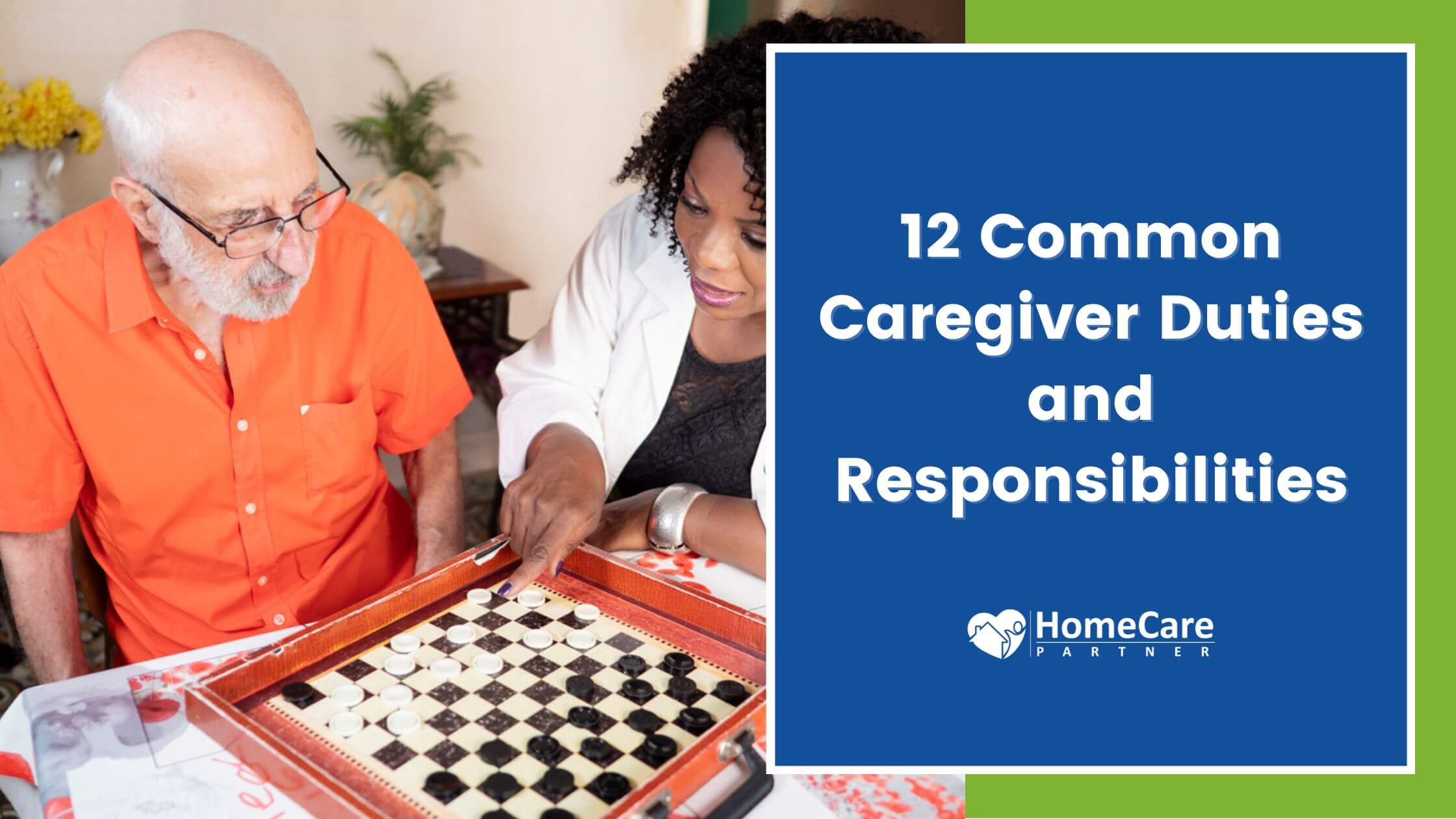


The roles and obligations of every caregiver are diverse. A caregiver can provide physical and emotional assistance to the chronically ill, those who are aging, or disabled individuals. Because no two individuals’ demands are the same, each person's caring requirements will differ.
However, multiple duties may be expected to be completed during the care cycle. There are many aspects involved in the caregiver's duties and responsibilities.
Read on to learn more about the common caregiver duties and responsibilities.
Caregiver’s duties and responsibilities extend beyond simply medical assistance. For instance, caregivers assist in day-to-day activities to maintain and support the quality of life at home. In the non-medical approach, caregiver’s responsibilities include personal care, companionship, homemaking assistance, custodial care, feeding, transportation, and non-clinical assistance.
The following are the duties that an in-home caregiver must provide to their patients.
A caregiver's effective communication brings a feeling of companionship to the one receiving the care. It allows patients to communicate their daily activities, concerns, and whatnot. Through communication, caregivers can receive feedback, which will help them improve their practice.
For seniors experiencing dementia, forgetting to perform day-to-day tasks becomes a part of life. In such cases, caregivers must engage with them, monitor their safety, and form friendships that stimulate cognitive functions.
Medication is an important aspect of the lives of older adults and people with chronic illnesses. Therefore, caregivers help remind your loved one to take the prescribed medication on time, without fail, and in exact dosage.
Often older adults and chronically ill patients struggle to keep a tab on their nutrition intake. Dietary plans are pivotal. Caregivers must ensure the meals are eaten as planned. They must assist in preparing a healthy meal with good nutritional values and feeding the patient if necessary.
Old age and disability make it difficult for individuals to clean their homes. In such times, a caregiver's duties and responsibilities include doing light housekeeping to keep homes neat and orderly.
Basic activities such as bathing, lavatory, dressing, and grooming can be difficult for aging or disabled patients. One of the caregiver's responsibilities is assisting seniors or disabled individuals with personal care.
As we age, our mobility is crucial. From visiting clinics to picking up medications, a caregiver should ensure that mobility is maintained. A caregiver should also run errands for patients, such as picking up groceries.
Limited mobility affects the body. In the case of the elderly, a caregiver should take patients for walks and light exercises. It will restore movement and prevent joint stiffness in older adults.
Usually, the families of patients carry out the expenses for patients. If the caregiver is given permission, they can manage the patient's basic payments, utility bills, and taxes.
Isolation and depression are common among elderly and disabled patients. Activities such as reading books, magazines, and newspapers, playing board games, and engaging with patients can improve their emotional and mental health.
In-home treatment patients may sometimes have limited communication with the outside world. As a result, they are hesitant when it comes to going out. Therefore, caregivers should engage in a way that helps patients to socialize with ease.
A caretaker can perform their duties well if the patient's family provides complete support. Maintaining constant communication with the family members and updating them regarding the progress of the patient's health is a great way to establish a healthy relationship.
A caregiver's job is challenging. However, having a caregiver can make a huge difference in the lives of people who need compassionate care. So if you or your loved ones need a caregiver, you should immediately contact one.
Looking for a caregiver for your loved one? Contact us at Home Care Partner to get matched with an ideal caregiver for your loved ones. Consult with our experts to create a custom care plan. You can also call us at (818) 740-3680.

Home Care Partner wants you to be confident in choosing us. We want to show that our care is unmatched!

Get 20% OFF a week's worth of care!
We want to show you that our care is unmatched.
Leave a Reply
Your email address will not be published. Required fields are marked *